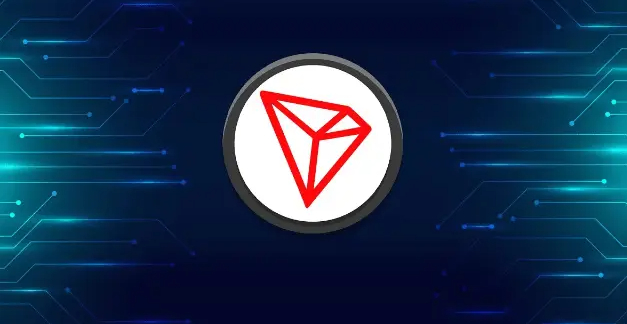-
 Bitcoin
Bitcoin $103,685.3782
0.65% -
 Ethereum
Ethereum $2,409.0255
2.84% -
 Tether USDt
Tether USDt $1.0000
0.01% -
 XRP
XRP $2.3965
0.44% -
 BNB
BNB $652.8214
2.32% -
 Solana
Solana $170.3582
-1.03% -
 USDC
USDC $1.0000
0.01% -
 Dogecoin
Dogecoin $0.2251
8.56% -
 Cardano
Cardano $0.7980
0.78% -
 TRON
TRON $0.2605
-0.20% -
 Sui
Sui $3.8977
-1.70% -
 Chainlink
Chainlink $16.3061
0.79% -
 Avalanche
Avalanche $24.3324
3.86% -
 Stellar
Stellar $0.3012
0.82% -
 Shiba Inu
Shiba Inu $0.0...01577
3.61% -
 Hedera
Hedera $0.2068
3.20% -
 Hyperliquid
Hyperliquid $25.2738
3.29% -
 Toncoin
Toncoin $3.3640
2.52% -
 Bitcoin Cash
Bitcoin Cash $417.9041
0.72% -
 UNUS SED LEO
UNUS SED LEO $8.7412
0.07% -
 Polkadot
Polkadot $5.0377
8.18% -
 Litecoin
Litecoin $101.8688
2.84% -
 Monero
Monero $322.2290
7.94% -
 Bitget Token
Bitget Token $4.8366
7.63% -
 Pepe
Pepe $0.0...01286
2.70% -
 Dai
Dai $1.0000
0.00% -
 Pi
Pi $0.7236
-2.21% -
 Ethena USDe
Ethena USDe $1.0002
0.02% -
 Uniswap
Uniswap $6.5901
4.35% -
 Bittensor
Bittensor $443.7615
2.68%
what's tron coin
Tron's user-friendly and scalable platform empowers developers and content creators by providing a foundation for decentralized applications, smart contract creation, and blockchain-based services.
Nov 08, 2024 at 08:02 pm

What is Tron Coin?
Tron is a decentralized blockchain platform that aims to provide a foundation for the development of decentralized applications (dApps), smart contracts, and various other blockchain-based services. It is designed to empower developers and content creators by providing a user-friendly and scalable platform for their projects.
History and Development: A Journey from Entertainment to Blockchain
- 2017: Genesis of Tron's Entertainment Roots
Justin Sun, Tron's founder, initially conceived Tron as a decentralized entertainment ecosystem. Under this vision, Tron focused on the development of peer-to-peer (P2P) file sharing, content distribution, and digital asset management within the entertainment industry. - 2018: Pivoting to a Blockchain Platform
Recognizing the potential of blockchain technology, Tron shifted its focus from entertainment to building a comprehensive blockchain platform. This transition involved developing a mainnet, creating a native cryptocurrency (TRX), and introducing a suite of blockchain-based tools and services. - 2019: Mainnet Launch and Expansion
The Tron mainnet officially launched in May 2019, marking a significant milestone in the platform's development. Since then, Tron has expanded its ecosystem through partnerships, strategic acquisitions, and the launch of additional features and services.
Core Features and Advantages: Empowering Developers and Users
- Delegated Proof-of-Stake (DPoS) Consensus Mechanism
Tron utilizes the DPoS consensus mechanism, which allows stakeholders to vote for delegates who are responsible for validating transactions and maintaining the network. This mechanism promotes efficiency, scalability, and decentralization. - Smart Contract Functionality
Developers can create and deploy smart contracts on the Tron blockchain. Smart contracts are self-executing agreements that facilitate the automation of tasks, ensuring transparency, efficiency, and trust in various blockchain applications. - Developer-Friendly Environment
Tron offers a comprehensive suite of development tools, documentation, and support resources to enable developers to build and deploy their decentralized applications and smart contracts with ease. - Scalability and Performance
Tron's network is designed to handle a high volume of transactions while maintaining low latency. This scalability and performance make it a suitable platform for demanding decentralized applications and services.
TRON Cryptocurrency (TRX): Fueling the Ecosystem
- Utility Token for Network Transactions
TRX, Tron's native cryptocurrency, is primarily used to pay for network fees associated with transactions, smart contract execution, and other blockchain operations. - Staking and Governance
TRX holders can stake their tokens to participate in the DPoS consensus mechanism by voting for delegates. This process helps secure the network and allows TRX holders to earn rewards for their contributions. - Value and Market Performance
The value of TRX fluctuates based on market demand, supply, and overall market conditions. It is traded on various cryptocurrency exchanges and has experienced significant price volatility over time.
Industry Adoption and Applications: Paving the Way for Blockchain Innovation
- Decentralized Finance (DeFi) and Stablecoins
Tron hosts a growing ecosystem of DeFi projects, including decentralized exchanges, lending platforms, and stablecoins. These applications provide financial services without intermediaries, offering users greater control over their assets and access to financial products. - Non-Fungible Tokens (NFTs)
Tron supports the creation and trading of NFTs, which are unique digital assets representing ownership of digital items such as art, collectibles, and virtual land. NFTs empower creators with new revenue streams and enhance digital content ownership. - GameFi and Metaverse
Tron has gained traction in the GameFi and metaverse industries. GameFi combines gaming with blockchain elements, allowing players to earn rewards and own in-game assets. Metaverses are virtual worlds that integrate blockchain technology, enabling users to interact, socialize, and own virtual experiences. - Enterprise Use Cases
Tron is also exploring enterprise applications, collaborating with businesses and organizations to leverage blockchain technology for supply chain management, identity verification, and other innovative use cases.
Disclaimer:info@kdj.com
The information provided is not trading advice. kdj.com does not assume any responsibility for any investments made based on the information provided in this article. Cryptocurrencies are highly volatile and it is highly recommended that you invest with caution after thorough research!
If you believe that the content used on this website infringes your copyright, please contact us immediately (info@kdj.com) and we will delete it promptly.
- Rexas Finance (RXS) Raises Over $48 Million in Presale, Tokenizing Real-World Assets to Open New Markets
- 2025-05-10 19:50:13
- The crypto market may be entering the early stages of a new altcoin season, according to analysts.
- 2025-05-10 19:50:13
- Bitcoin (BTC) Price Surges to $104,300, Confirming Uptrend and Solidifying Bullish Outlook
- 2025-05-10 19:45:12
- Bitcoin (BTC) Price Surges to $104,300, Confirming the Uptrend and Solidifying the Bullish Outlook Projected for 2025
- 2025-05-10 19:45:12
- SUI Has Experienced an Impressive Price Rally, Rising Nearly 20% in Just Two Days
- 2025-05-10 19:40:15
- Encapsulate Joins the IOTA Ecosystem as a New Validator
- 2025-05-10 19:40:15
Related knowledge

What is Ethereum’s Slashing mechanism and how to punish malicious behavior?
Feb 20,2025 at 03:08am
Key PointsOverview of slashingDifferent types of slashing in EthereumIncentives and consequences of slashingIdentifying and reporting slashed validatorsOngoing discussions and potential improvementsEthereum's Slashing Mechanism: Punishing Malicious BehaviorEthereum's slashing mechanism is an essential tool for ensuring network security and punishing mal...

What is the verifier node of Ethereum and how to become a verifier?
Feb 19,2025 at 06:00pm
The Verifier Node of Ethereum: A Comprehensive GuideKey Points:What is a Verifier Node?How to Become a Verifier NodeResponsibilities and Rewards of a Verifier NodeMinimum Requirements for Becoming a Verifier NodePotential Difficulties in Running a Verifier Node1. What is a Verifier Node?A Verifier Node is an independent entity on the Ethereum network th...

What is Ethereum’s staking, and how to participate and earn money?
Feb 19,2025 at 04:37pm
Key Points:Understanding Ethereum's Staking MechanismSteps to Participate in StakingBenefits and Rewards of StakingSecurity and Risk ConsiderationsTechnical Requirements and Hardware OptionsPotential Challenges and Troubleshooting TipsFAQs on Ethereum StakingWhat is Ethereum's Staking?Proof-of-Stake (PoS) is a consensus mechanism used in blockchain netw...

What is Ethereum’s DAO (Decentralized Autonomous Organization) and how does it work?
Feb 20,2025 at 03:12am
Key PointsDefinition and Structure of a DAOGovernance and Decision-Making in DAOsBenefits and Use Cases of DAOsChallenges and Limitations of DAOsWhat is Ethereum's DAO (Decentralized Autonomous Organization) and How Does It Work?Definition and Structure of a DAOA Decentralized Autonomous Organization (DAO) is an innovative governance and management fram...

What is Ethereum's multi-signature wallet and how to improve security?
Feb 20,2025 at 02:18pm
Key Points:Understanding the Concept of a Multi-Signature WalletBenefits and Drawbacks of Multisig WalletsRequirements for Setting Up a Multisig WalletStep-by-Step Guide to Generating a Multisig WalletImplementing Strategies for Enhanced Security1. Understanding the Concept of a Multi-Signature WalletA multi-signature (multisig) wallet in the Ethereum e...

What is Ethereum's oracle and how to provide data for smart contracts?
Feb 21,2025 at 01:30am
Key Points:Understanding the concept of oracles in EthereumExploring different types of oraclesDetailed guide on how to provide data for smart contractsAddressing potential challenges and considerationsWhat is Ethereum's Oracle?Oracles are crucial components in the Ethereum ecosystem, enabling smart contracts to access real-world data and off-chain even...

What is Ethereum’s Slashing mechanism and how to punish malicious behavior?
Feb 20,2025 at 03:08am
Key PointsOverview of slashingDifferent types of slashing in EthereumIncentives and consequences of slashingIdentifying and reporting slashed validatorsOngoing discussions and potential improvementsEthereum's Slashing Mechanism: Punishing Malicious BehaviorEthereum's slashing mechanism is an essential tool for ensuring network security and punishing mal...

What is the verifier node of Ethereum and how to become a verifier?
Feb 19,2025 at 06:00pm
The Verifier Node of Ethereum: A Comprehensive GuideKey Points:What is a Verifier Node?How to Become a Verifier NodeResponsibilities and Rewards of a Verifier NodeMinimum Requirements for Becoming a Verifier NodePotential Difficulties in Running a Verifier Node1. What is a Verifier Node?A Verifier Node is an independent entity on the Ethereum network th...

What is Ethereum’s staking, and how to participate and earn money?
Feb 19,2025 at 04:37pm
Key Points:Understanding Ethereum's Staking MechanismSteps to Participate in StakingBenefits and Rewards of StakingSecurity and Risk ConsiderationsTechnical Requirements and Hardware OptionsPotential Challenges and Troubleshooting TipsFAQs on Ethereum StakingWhat is Ethereum's Staking?Proof-of-Stake (PoS) is a consensus mechanism used in blockchain netw...

What is Ethereum’s DAO (Decentralized Autonomous Organization) and how does it work?
Feb 20,2025 at 03:12am
Key PointsDefinition and Structure of a DAOGovernance and Decision-Making in DAOsBenefits and Use Cases of DAOsChallenges and Limitations of DAOsWhat is Ethereum's DAO (Decentralized Autonomous Organization) and How Does It Work?Definition and Structure of a DAOA Decentralized Autonomous Organization (DAO) is an innovative governance and management fram...

What is Ethereum's multi-signature wallet and how to improve security?
Feb 20,2025 at 02:18pm
Key Points:Understanding the Concept of a Multi-Signature WalletBenefits and Drawbacks of Multisig WalletsRequirements for Setting Up a Multisig WalletStep-by-Step Guide to Generating a Multisig WalletImplementing Strategies for Enhanced Security1. Understanding the Concept of a Multi-Signature WalletA multi-signature (multisig) wallet in the Ethereum e...

What is Ethereum's oracle and how to provide data for smart contracts?
Feb 21,2025 at 01:30am
Key Points:Understanding the concept of oracles in EthereumExploring different types of oraclesDetailed guide on how to provide data for smart contractsAddressing potential challenges and considerationsWhat is Ethereum's Oracle?Oracles are crucial components in the Ethereum ecosystem, enabling smart contracts to access real-world data and off-chain even...
See all articles























































































